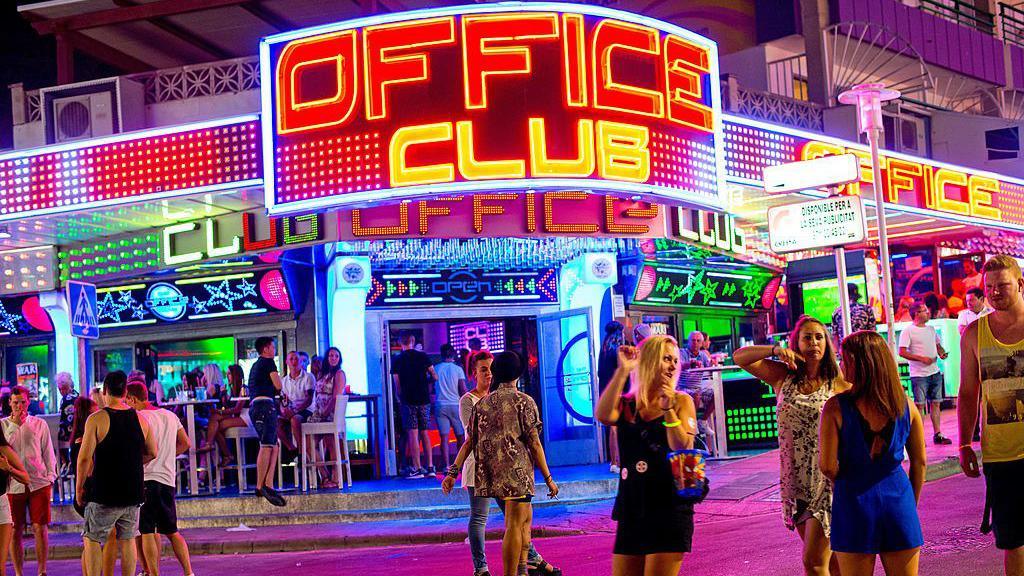Spanish islands toughen curbs on party holidays

Majorca is popular with British and German tourists
- Published
Spain's Balearic Islands are expanding curbs on street drinking and further restricting party boats in a bid to crack down on alcohol-fuelled holidays in tourist areas.
The government says the toughening of a law passed in 2020 will apply to popular hotspots including Playa de Palma and Magaluf in Majorca and Sant Antoni in Ibiza.
People caught drinking outside of authorised areas will be fined between €500-1,500 (£430-1290).
Under the new law, coming into force on Saturday, the number of sanctions taken against foreigners will be counted and submitted to the respective embassies.
The legislation introduces tougher rules against party boats, which will be banned from getting closer than one nautical mile (1.852 km) of the designated areas. Picking up or disembarking passengers will continue to be banned.
Party boats had previously been banned from advertising in the three areas.
Luis Pomar, a press officer at the Balearic Islands tourism council, told the 91Čȱ¬ that the 2020 law had been working to curb anti-social behaviour. He added that he hoped the law would no longer be needed “in three to four years, if we instil in people how to behave”.
Up to €16 million (£13.7m) will be spent on improving areas which see the most tourism.
The areas the law applies to have been modified at the request of the local authorities, the Balearic Islands said.
Mr Pomar said a commission on "the Promotion of Civility in Tourist Zones" would be expanded to include representatives of the countries whose tourists are most associated with problems - the UK and Germany.
The government reiterated that the 2020 law bans shops from selling alcohol between 21:30 and 08:00 local time (20:30-07:00 GMT).
At the time of the introduction of the 2020 law, the regional government said it was the first in Europe to restrict the promotion and sale of alcohol in certain tourist zones.
It said the new measures would "fight excesses" and "force a real change in the tourism model of those destinations".
But some locals complained that the law would hurt businesses.